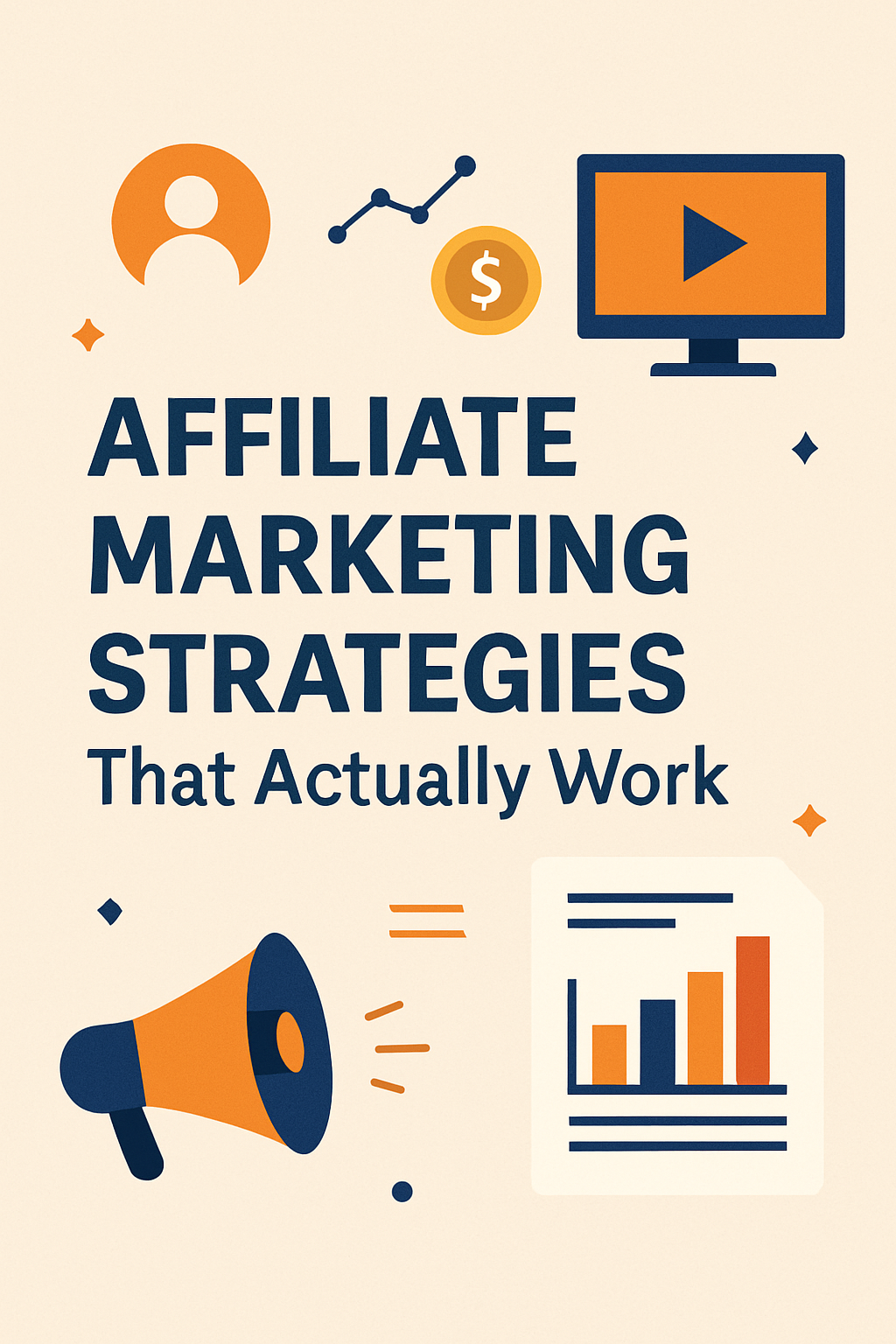Affiliate Marketing Strategies That Actually Work
Affiliate marketing remains one of the most accessible and rewarding ways to earn income online—but only if done strategically. In 2025, with rising competition and smarter consumers, you can't afford to rely on outdated tactics. Instead, affiliate success requires marketing savvy, trust-building, and a strong understanding of buyer psychology. Let’s break down affiliate marketing strategies that actually work in today’s digital ecosystem.
What is Affiliate Marketing and Why It Still Works in 2025
Affiliate marketing is a performance-based model where individuals (affiliates) earn commissions by promoting a company’s products or services. Despite being around for decades, affiliate marketing continues to evolve and stay relevant.
The Evolution of Affiliate Marketing
Early affiliate strategies relied on banners, static links, and basic blog reviews. Today, it’s all about value-driven content, advanced tracking, and omnichannel presence. The affiliate space has matured, and consumers expect more transparency and value than ever before.
Affiliate Marketing vs. Traditional Advertising
Unlike traditional advertising that focuses on reach and impressions, affiliate marketing is conversion-driven. Brands pay only when a sale or action is completed, making it a low-risk, high-ROI strategy for businesses—and a profitable opportunity for marketers who know how to play the game.
The Core Marketing Principles Behind Successful Affiliate Campaigns
To win in affiliate marketing, you must master the fundamentals of marketing.
Understand Buyer Psychology and Funnels
Knowing what motivates your audience and how they make purchase decisions is critical. Your content should align with the different stages of the buyer’s journey—from awareness to decision.
Focus on Solving Problems, Not Selling Products
Top-performing affiliates don’t just push products—they solve problems. Whether it’s through tutorials, comparisons, or product walkthroughs, your goal should always be to provide value first.
Personal Branding and Trust as Conversion Engines
People buy from people they trust. Establishing a strong personal brand, being authentic, and consistently providing helpful content can dramatically increase conversions over time.
Strategy 1: Content Marketing for Affiliate Success
Content remains one of the most powerful affiliate strategies, especially when tailored for search intent and audience needs.
- SEO Blog Posts with Commercial Intent: Focus on keywords like “best tools for...”, “product review”, or “alternative to...” to attract ready-to-buy users.
- Product Comparison and Review Pages: These provide immense value by helping users evaluate options before buying.
- High-Converting Listicles: Posts like “Top 5 Tools for Digital Marketers in 2025” engage readers and create multiple conversion points.
Strategy 2: Email Marketing to Nurture and Convert
Email is not dead—far from it. It’s one of the most effective channels for building relationships and making affiliate sales.
- Build a Lead Magnet Funnel Around the Niche: Offer free value (ebooks, checklists, mini-courses) to build a qualified list.
- Automated Email Sequences That Soft-Sell: Create sequences that educate, build trust, and gradually introduce affiliate products.
- Promote Affiliate Offers in Newsletters and Email Courses: Keep your list engaged with curated value and occasional recommendations.
Strategy 3: Social Media and Influencer-Driven Campaigns
The rise of short-form video and storytelling has transformed how affiliates engage audiences.
- Retargeting Audiences with Pixel Tracking: Leverage tracking tools to retarget viewers who’ve shown interest in your offers.
- Use of Storytelling Instead of Direct Promotion: Tell real stories of how a product helped you or someone else—it’s more persuasive than a sales pitch.
- Retargeting Audiences with Pixel Tracking: Leverage tracking tools to retarget viewers who’ve shown interest in your offers.
Strategy 4: Paid Ads for Affiliate Marketing (Advanced)
For affiliates with a budget and experience, paid advertising can accelerate growth.
- Google Ads and Native Ads for Affiliate Traffic: These can drive targeted traffic to high-converting landing pages.
- Landing Page Optimization for Affiliate Offers: Always test headlines, CTAs, and layout to maximize conversions.
- Compliance Tips to Avoid Getting Banned: Follow platform guidelines to avoid account suspensions or ad disapprovals.
Bonus: Platforms to Explore for Affiliate Programs in 2025
Looking for where to start or expand your affiliate partnerships? Here are some high-potential options
- High-Paying Programs in Marketing and SaaS Niches: Software tools, email platforms, and marketing automation services often offer great commissions
- Affiliate Marketplaces like Impact, PartnerStack, Digistore24: These platforms offer a wide range of products and reliable tracking systems.
- Secret Tip: Brand Partnerships with Custom Commission Rates: Reach out to brands directly to negotiate better terms and exclusive deals.
Common Mistakes to Avoid in Affiliate Marketing
Even seasoned marketers fall into these traps:
- Promoting Without Testing the Product: Only promote what you’ve used or thoroughly vetted.
- Lack of Transparency or Overhyping: Always disclose affiliate links and stay honest in your reviews.
- Ignoring Analytics and Optimization: If you’re not tracking what works, you’re wasting time and effort.
Final Thoughts: Marketing is the Real Key to Affiliate Success
Affiliate marketing in 2025 is not about spamming links or chasing trends—it’s about real marketing.To succeed, treat affiliate marketing like a business. Apply marketing fundamentals, understand your audience deeply, and focus on long-term value rather than short-term sales. The affiliates who thrive are those who solve problems, build trust, and create strategic systems.By using SEO, email campaigns, social content, and even paid ads effectively, you can turn affiliate marketing into a sustainable, ethical, and profitable venture.




.png)
